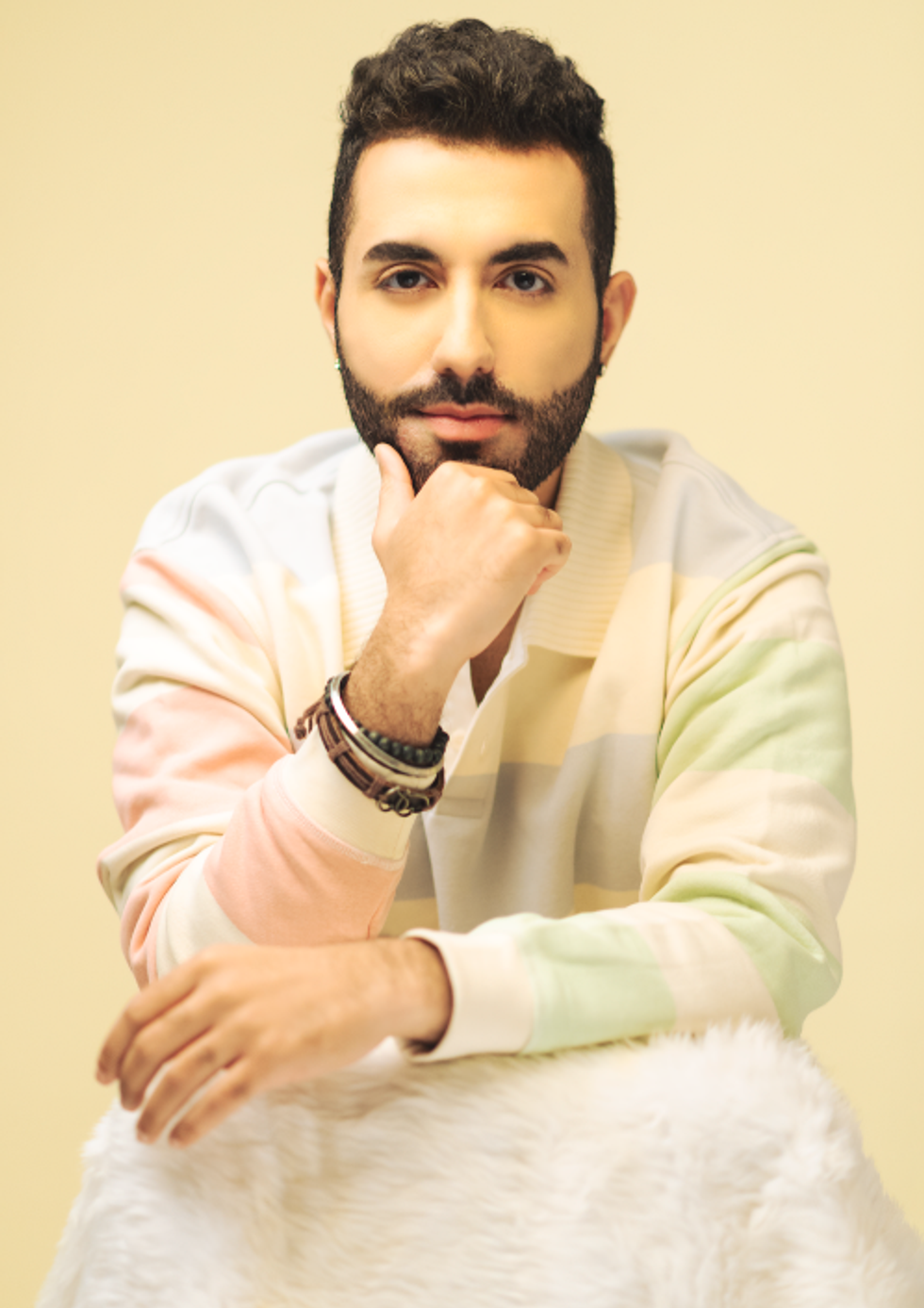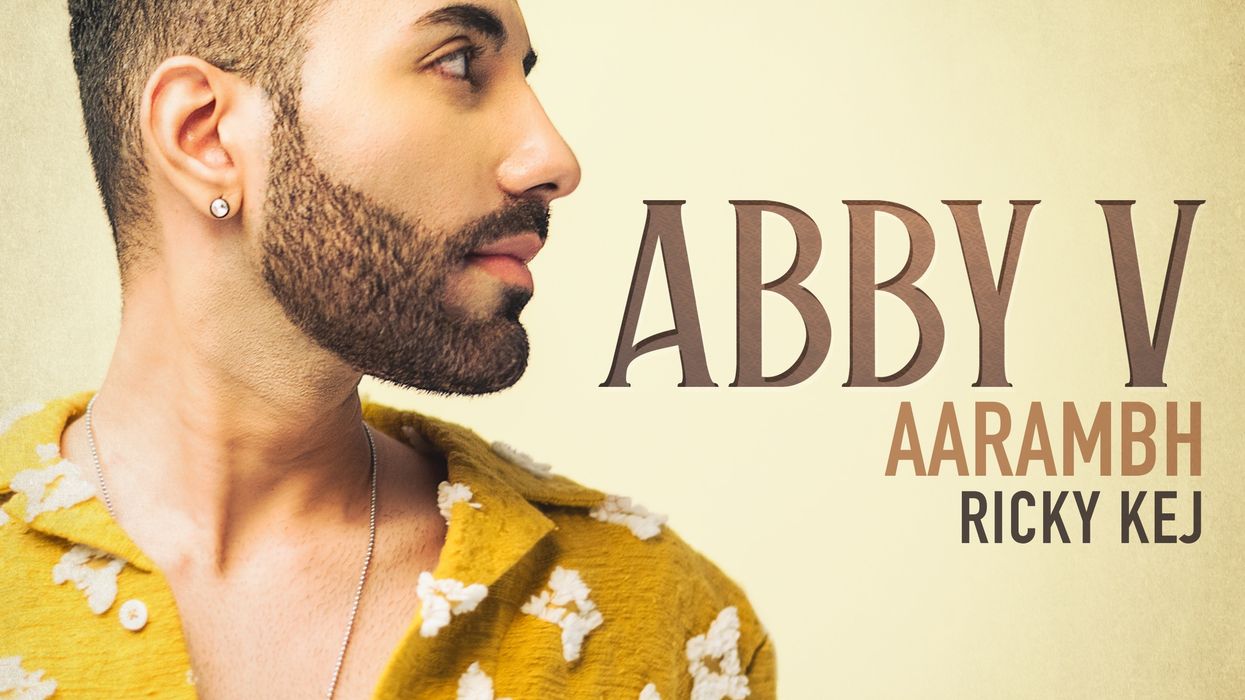SEEING his father listen to top tunes and sing around the house first connected Abby V to music. That interest turned into a passion after being exposed to its deeper aspects and led the terrific talent towards a singing career.
After gaining popularity on social media, he teamed up with three-time Grammy-winning composer-producer Ricky Kej for new album Aarambh, which was recently released on the fast-growing UK-based label Sufiscore.
The commercial album incorporates various genres and sees the Toronto-based singer team up with a host of top singing talents, on commercial songs aimed at cross-cultural listeners.
Eastern Eye caught up with the exciting newcomer to discuss his new album, working with Ricky Kej and future hopes.
What led you towards your new album?
In January 2020, I released a YouTube video titled 73 Ragas with Abby which ended up going viral. A lot of artists and labels saw the video. That’s when Ricky Kej and Sufiscore both independently got in touch with me. Both wanted to collaborate with me. I thought this would be a beautiful way to form this creative partnership since we were all operating remotely during the pandemic; and that’s how the album was conceived. I’m very grateful for the support and assistance both Ricky and Sufiscore have provided in this journey.
Tell us about the album?
Aarambh is a true celebration of south Asian music with the backdrop of western music production and arrangement. The melody and lyrics of all the songs are deeply rooted in south Asian classical, folk and Sufi music, while the production and song structure borrow sounds and styles from western contemporary music.
Almost all the songs are in Hindi and present different ragas, moods, rhythmic patterns, and production styles. We’ve embedded unique concepts of south Asian classical music like moorchana and tarana/tanam while packaging it in a way that is palatable to the masses and critics alike.
What was it like working with award-winning composer Ricky Kej?
One of the greatest creative partnerships I have experienced in my life has been with Ricky. He is truly one of the most receptive, kind, and knowledgeable musicians you’ll find in the industry today. For everything he’s achieved, he treats everyone as an equal, accepting every idea and feedback, in the most genuine and receptive manner.
Tell us more about his working style?
He has weaved the compositions so brilliantly, whether it is the intensely raga-based Ghule or the lilting Ratiya, his composition and production expertise shine through on every track. It is truly a huge honour to have collaborated with him extensively on this album.
How did you decide on which singers to collaborate with on the album?
Ricky and I first completed all the songs with just my vocals. We then decided on artists mutually who would be right for the song and had a blast with these discussions. It was thrilling to brainstorm singers and send it to them, hear their versions and see how the track gets uplifted with their flavour. We decided to work with singers familiar to our ecosystems already.
Tell us about that…
Like Benny (with his long-time association with Ricky), Sivaangi and Antara Nandy (frequent collaborators of mine) and Pratibha Singh Baghel (frequent collaborator with Sufiscore) – along with some artists we had never worked with before like KS Chithra and Sona Mohapatra.

Who are you hoping connects with the songs?
We’re hoping anyone and everyone who connects with good music is able to relate to these songs. They don’t need any background or prior knowledge of south Asian classical/ rooted music - nor do they have to understand Hindi. These songs have been crafted in a way that could appeal to people who enjoy pop music, as much as connoisseurs of Indian classical music.
Do you have a personal favourite song on the album?
(Laughs) They’re all my favourite songs. But Payoji holds a very special place in my heart because that is the first song Ricky and I worked on from the album. Also, I got a chance to collaborate with one of the most loved, accomplished and respected musicians in the world – KS Chithra ji.
Could you tell us about your music master plan going forward?
I just want to keep making good music that appeals to myself and my audience. The greatest joy of being an artist is when we get to keep going and continue doing what we love. I would love to keep on making relatable music because I care about my audience and how my art reaches and connects with them. I hope to continue doing this.
Who else would you love to collaborate with?
So many – the list is endless. But right now, two names that pop up in my head are AR Rahman sir and Asha Bhosle ji.
What music dominates your personal playlist?
English pop music. Ask me anytime and I can tell you the top 10 songs of the week on the Billboard Top 100 list – I absolutely love it. Taylor Swift, Harry Styles, Rihanna, Ariana Grande, I’m all about pop culture and music.
Why should we pick up your new album?
You should pick it up because you’ll get to go on a musical journey with us. Each track takes you on a ride of emotions and feelings. A track like Ghule gets you in a pensive, intense mood, while Kahe Sataye gets you dancing to the beat. Aarambh is a rollercoaster of emotions, moods, and musical variations. You have to listen to it to experience it.




